 Case managers are advocates, leaders, influencers, problem-solvers, educators and more! CMSA is honored to host Military/DoD and VA case managers for the 2018 Military/VA/DoD Day in Chicago. With almost 200 attendees in Austin, we are excited to continue this gathering in Chicago.
We are seeking representatives from all branches of the armed forces, national guards, national reserves, coast guards and the VA to serve as:
• Educational speakers
• Poster presenters
• Planning commmittee members
The deadline is extended through January 12, 2018. Learn more at the link and submit your presentation today!
|
 As a 24/7 option for fully digital continuing education, our Educational Resource Library (known as the ERL) is your answer. Included with CMSA membership, the ERL offers approximately 160 online sessions with continuing education credits. CMSA members: take full advantage of this important member benefit, which is included free of charge.
We have six new ethics courses loaded on our ERL, which are pre-approved as CCMC Ethics courses. One of these courses is "A Pathway Towards Recognition of Your Expertise—Legal & Ethical Knowledge Essential to the Practice of Case Management," covering important information for all case managers.
Explore more at the link and begin your courses today!
|

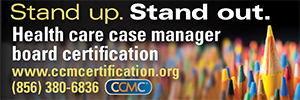
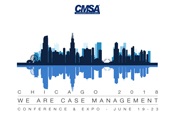 Have you considered registering for CMSA's Annual Conference & Expo in Chicago yet? We have a full week of sessions, pre- and post-conference events and fun planned!
Our three keynotes, who you will not want to miss, are confirmed: Dr. Travis Stork, Dr. Allen Hamilton and Dr. Rick Rigsby.
And don't forget: Each paid registrant receives a FREE one-year individual membership with CMSA! Follow the link below to learn more and register. We can't wait to see you there!
|
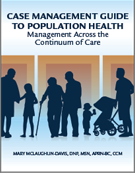 CMSA is proud to announce our national president, Mary McLaughlin-Davis, is releasing a new book, Case Management Guide to Population Health: Management Across the Continuum of Care.
The book is a comprehensive playbook for ensuring the effectiveness of a population health program. This resource is designed to help case management and other healthcare professionals examine social determinants of population health, gauge the sustainability of population health modules in case management, and measure case management outcomes.
Please visit the link below for more information. Congratulations, Mary!
|
 Marquis Who's Who, the world's premier publisher of biographical profiles, has presented Jeanne H. Boling with the Albert Nelson Marquis Lifetime Achievement Award. An accomplished listee, Ms. Boling celebrates many years' experience in her professional network and has been noted for achievements, leadership qualities and the credentials and successes she has accrued in her field.
Ms. Boling established Case Management, Inc, an association management company, and concurrently served as its CEO and executive director of Case Management Society of America, the largest organization serving case managers in the USA and across the world. She led Case Management Society of America to steady membership and chapter growth, national conference success and financial stability. Serving in those roles from 1994, she transitioned both of those entities to new ownership and executive directorship in 2006.
Among many of her achievements, Jeanne was instrumental in developing the first CMSA Standards of Practice for Case Management. Read more about Jeanne and her career work at the link. Congratulations, Jeanne!
|
 Do you keep up with the world on social media? We do, too!
In addition to this monthly enewsletter and other communications throughout the month, we post timely CMSA and industry-related content on our social accounts. It's a great way to know what's going on with CMSA leadership, chapters and individuals — your professional community!
Click to follow us on Facebook, Twitter and LinkedIn. We'll see you there!
|
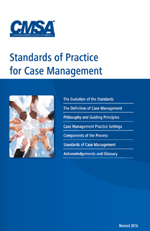
Download CMSA's Standards of Practice for Case Management, 2016 revision, which provides practice guidelines for the case management industry and its diverse stakeholders.The impetus for the 2016 revision of the Standards is the need to emphasize the professional nature of the practice and role of the case manager.
The 2016 Standards contain information about case management including an updated definition, practice settings, roles and responsibilities, case management process, philosophy and guiding principles, as well as the standards and how they are demonstrated.
Download Your Copy
|
 Earlier this year, we announced a partnership with CCMC to continue advancing professional case managers in their career paths. Under the agreement, CMSA members receive a 20 percent discount when applying for the CCM, as well as upon renewal. Those who hold the CCM certification receive a 20 percent discount for CMSA membership.
If you have questions about how to take advantage of your new member benefit, please contact CMSA Client Services at cmsa@cmsa.org or 501-225-2229.
|

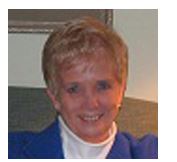 Pat Stricker, RN, M Ed
SVP, Clinical Services
TCS Healthcare Technologies
A few months ago, I wrote an article entitled "Unplanned Readmissions: Are They Quality Measures or Utilization Measures?" It explained the Hospital Readmissions Reduction Program (HRRP), which began in October 2012 as part of the Affordable Care Act (ACA). That article explained the program and its results over the past five years. However, more and more healthcare leaders and organizations are beginning to question whether HRRP is a valuable program or whether it is time to move on to something that focuses on quality of care and clinical outcomes, rather than cost savings. This article will address those issues. (In this article, "readmissions" mean unplanned or preventable readmissions.)
|

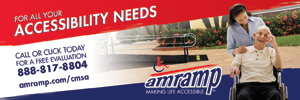
 by Nancy Skinner, RN-BC, CCM, ACM
The very first case manager I ever met was a workers’ compensation case manager. As a young nurse practicing in a metropolitan hospital, I provided direct care to patients who experienced significant full-thickness burns. That was over 40 years and, yet, I continue to remember one patient who was injured in an industrial accident. Initially, his prognosis was poor with little expectation that he would survive.
As the interdisciplinary team cared for him over several months, we became familiar with his visitors, including his wife, a few co-workers and a nurse who represented his employer. Being a bit skeptical, we never fully understood the role of this "insurance" nurse. Hospital administration advised us to be cooperative but carefully "filter" any information shared with this "person," who was described as a representative of the insurance company. One day while I was doing a comprehensive dressing change, the patient began to describe how this "insurance" nurse was a "blessing" to him and his wife. He described this nurse, or as he called her, "his case manager," as a person who was helping him to someday return to work. He said, "She is already planning for the help I will need after I leave the hospital" and how she was beginning to put plans in place for him to ultimately return to work. He described her as the one person who saw beyond his current needs to identify the care he would require tomorrow to help him to once more have a productive and happy life.
|
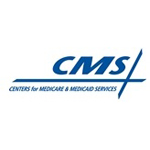 Interactive tool adds extended-release opioid prescribing rates, county-level hot spots Interactive tool adds extended-release opioid prescribing rates, county-level hot spots
On November 29, the Centers for Medicare & Medicaid Services (CMS) released an updated version of the Medicare opioid prescribing mapping tool. This tool is an interactive, web-based resource that visually presents geographic comparisons of Medicare Part D opioid prescribing rates. The tool includes the addition of extended-release opioid prescribing rates and county-level hot spots and outliers, which may identify areas that warrant attention.
The mapping tool offers local communities greater transparency into opioid prescribing in the Medicare Part D program. Communities can use this resource to understand how this critical issue affects their area, examine regional variation and make informed decisions about how to allocate resources. The underlying data that feeds this tool is also used by CMS to monitor and manage high-risk use of opioids in the Part D program.
Source: Centers for Medicare & Medicaid Services
|
 A startling 83.6 percent of patients with a known history of atrial fibrillation who were hospitalized with acute ischemic stroke were not receiving therapeutic guideline-recommended anticoagulation therapy before their stroke in the recent Patient-Centered Research into Outcomes Stroke Patients Prefer and Effectiveness Research (PROSPER) studies supported by the Patient-Centered Outcomes Research Institute (PCORI); https://www.pcori.org/). In the study of 94,474 patients with atrial fibrillation who were admitted for acute ischemic stroke in 1,622 hospitals across the U.S. participating in the American Heart Association’s Get With The Guidelines®-Stroke Program from 2012 to 2015, patients not receiving adequate antithrombotic medication were more likely to experience more severe stroke and had a higher risk for in-hospital mortality. In a companion study of 12,552 warfarin-naïve patients with persistent or paroxysmal atrial fibrillation or flutter admitted for ischemic stroke, patients who were discharged with warfarin after a stroke had a significantly lower rate of major adverse cardiovascular events, all-cause mortality, and readmission for ischemic stroke at 2 years. In addition, patients treated with warfarin had an average of 79 more days of ‘home time’ in the 2 years following their stroke.
|
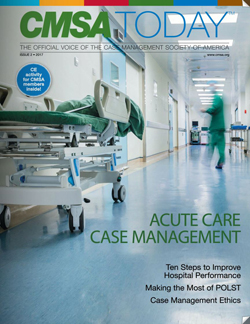 CMSA Today™—the official magazine of the Case Management Society of America—is the magazine for case managers. We are committed to providing case management knowledge, perspectives and news to case managers in all sectors of the profession. To facilitate that mission, we accept and consider: CMSA Today™—the official magazine of the Case Management Society of America—is the magazine for case managers. We are committed to providing case management knowledge, perspectives and news to case managers in all sectors of the profession. To facilitate that mission, we accept and consider:
- Original articles written by case managers of all healthcare backgrounds;
- Expertly prepared articles from professional writers—whether medical
writers or experienced generalists—on case management topics;
- Feature articles, column material, and news about case management
trends and issues, as well as about CMSA chapters and their activities;
- and personal, member-generated items considered nontraditional for a
professional-association publication as poems, remembrances and similar
sorts of content.
Consider sharing your knowledge by writing and submitting an article! Click below to learn more.
Learn More
|
|
| |
|

